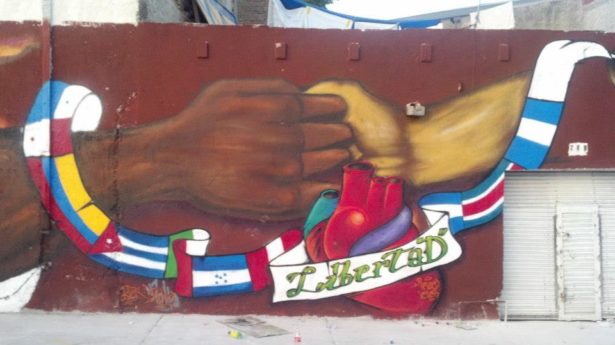The Unitarian Universalist Service Committee advances human rights through grassroots collaborations.
FM4 Paso Libre: An Organization Dedicated to Just, Free, and Dignified Migration
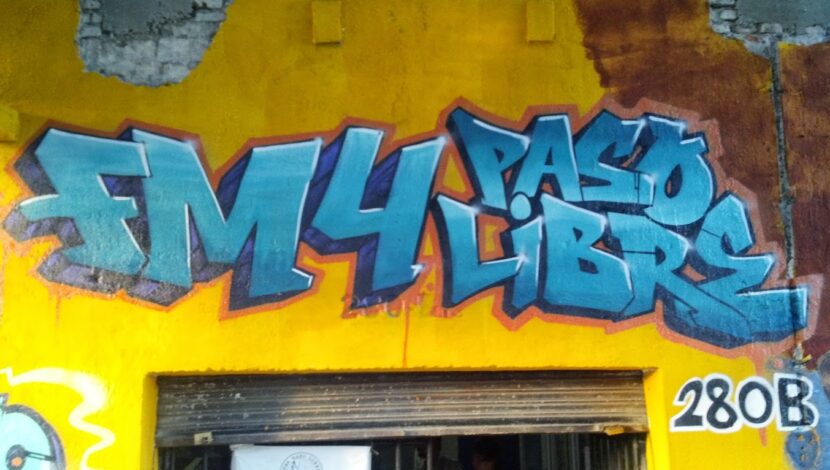
By Deanna Johnson on December 15, 2022
It’s like a utopia; it’s a utopic migratory format to think that everyone has the right to migrate in a just, free, and dignified way.
…
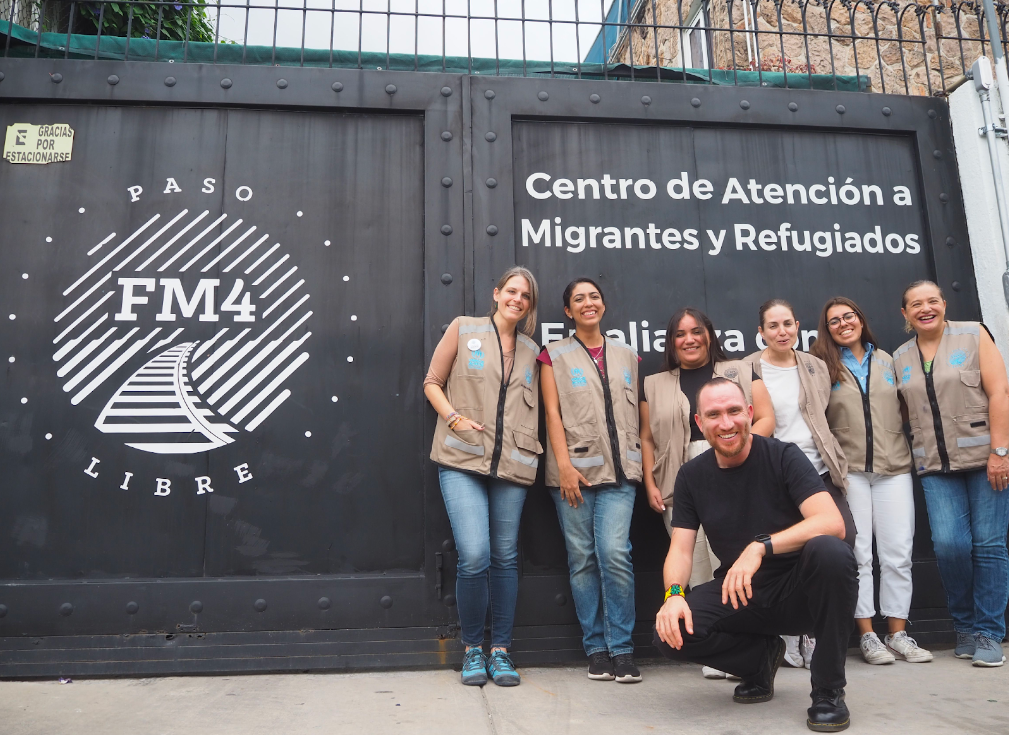
The Start
For two decades, Mexico has played a critical role in the migration of individuals and families to the United States. Historically, most of these individuals have come from Central American towns primarily within the countries of Guatemala, Honduras, and El Salvador.
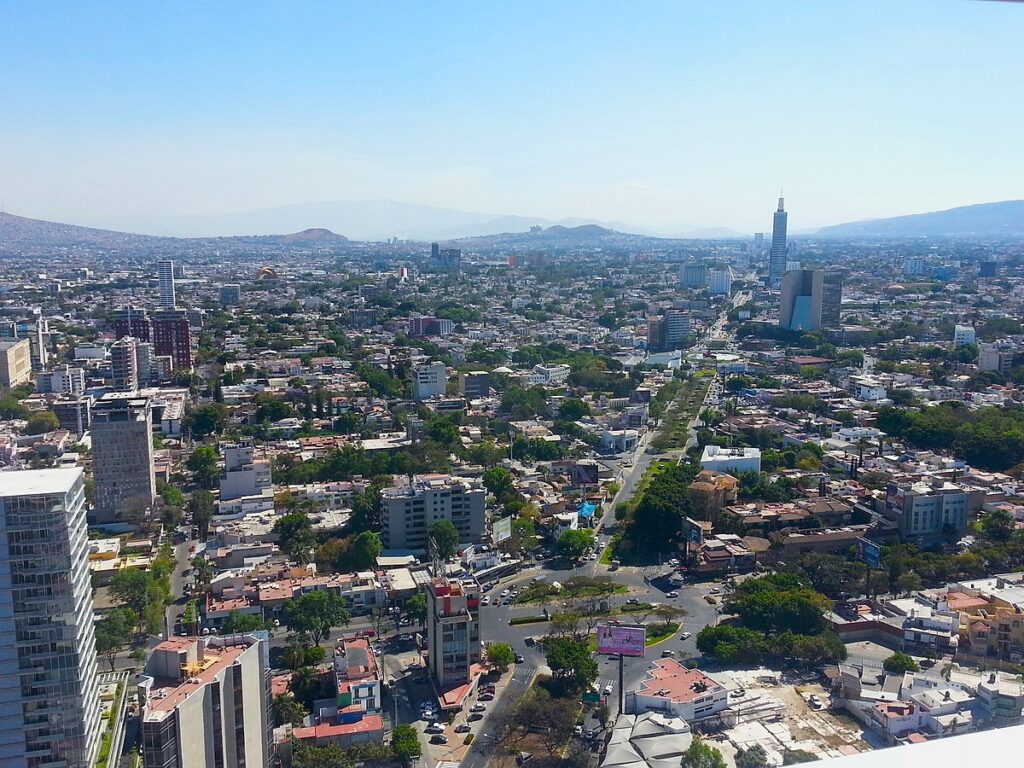
In the early 2000s, the majority of people migrating to the United States traveled along rail lines that passed through the Gulf region—past San Luis Potosí and Monterrey into Texas—or through the Central region—past Torreón and Ciudad Juarez into New Mexico. However, at this time there was also a significant number of people who instead went north through the Pacific region of the country and passed through the greater Guadalajara metropolitan area. Because this path was relatively less traveled at the time and because of Mexican government crackdowns on migration in response to pressure from the George H.W. Bush administration—there were very few resources available for those passing through.
In 2007, Luis Enrique (also known as Quike), as part of a collective of volunteers, responded to this situation, and FM4 Paso Libre’s journey commenced:
“From the time we started working, we realized that there was no other collective of people or formal organization that worked with migrant individuals. So, we really were […] one of the first collectives that started to work with this population in that year [2007] […] In the place where we started providing humanitarian aid, a woman whose house was nearby [lent us her patio. It was] a very precarious and humble house, but this woman had a big heart. Her name was Doña Adela. [We used] her patio to put a stove and a small refrigerator to cook food and serve the migrant individuals. It was a beautiful thing because this person (Doña Adela ) didn’t have the economic conditions (she wasn’t middle class, she was working class), but she had a lot of heart and decided to help us. Apart from that, we went to the railroad tracks, and we provided humanitarian aid to the people we saw. We did it without a lot of coordination, but with a lot of heart.”
Heart was exactly what it took for the group that would become FM4 Paso Libre to overcome the obstacles they were presented at the outset of their work. Not only did the group lack a physical home base, but they also lacked a steady stream of funding and legal recognition, and they faced threats from armed criminal groups. The first step in formalizing their work to address these issues was to develop a name for their new organization:
“In 2009, we [established] ourselves as a legal entity. We converted our name then to our legal name which is Dignidad y Justicia en el Camino A.C., and our popular name is this one that you know, FM4 Paso Libre. And why do we call ourselves FM4 Paso Libre? Because FM is the acronym for forma migratoria (migratory format). Before, in Mexico, foreigners could request three types of migratory format entry: Forma Migratoria 1, Forma Migratoria 2, Forma Migratoria 3 to enter the country. So, we thought of a Forma Migratoria 4 that didn’t exist but that represented a free, dignified, and just path (paso libre, digno, y justo). It’s like a utopia, it’s a utopic migratory format to think that everyone has the right to migrate in a just, free, and dignified way.”
With FM4 Paso Libre’s new legal status, the team partnered with the Institute of Technology and Higher Studies of the West (ITESO), a Jesuit university based in Guadalajara, to secure funding. With the funding received through the partnership, FM4 was able to rent a building within which they established a cafeteria, which opened on Mother’s Day 2010 as their first physical space. The building was located in an industrial neighborhood next to the railroad tracks and was able to serve migrating individuals while they were in transit. With this set up, people simply “knocked on the door, were served, and continued their journey.”
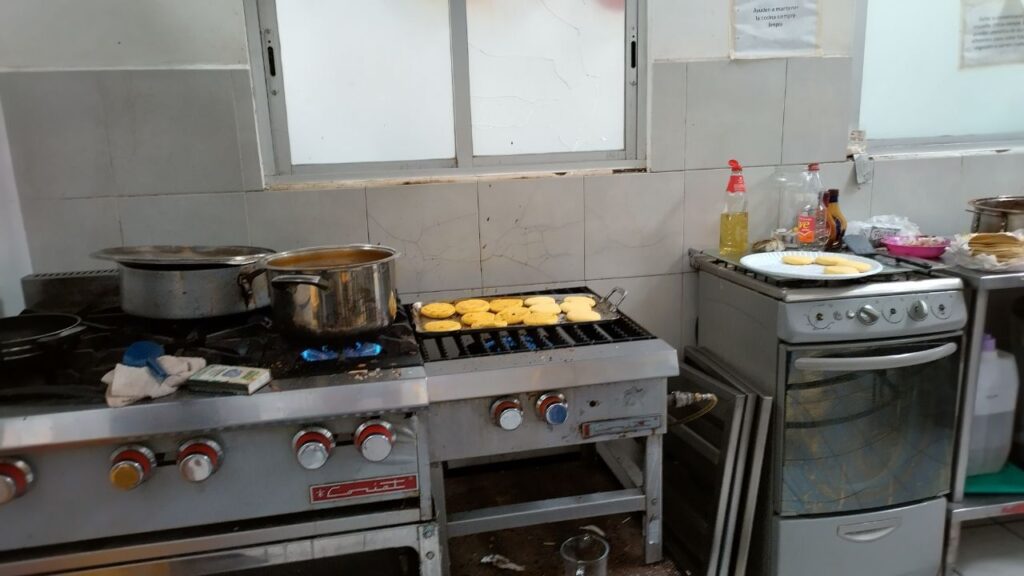
However, after five years of operating out of the cafeteria, FM4 Paso Libre was forced to change locations due to threats from organized crime. At this point, the government of Jalisco, the state in which Guadalajara sits, supported FM4 Paso Libre in securing a building in a different part of the city. There, FM4 Paso Libre established a shelter for individuals and families staying overnight. At this new location, the team also created new security protocols, which have since protected against criminal threats.
FM4 Paso Libre Today
FM4 Paso Libre remains a critical actor in Guadalajara, consistently adopting new approaches and working closely with all members of the community to address the ever-evolving needs of people in migration in the area.
At the start of FM4 Paso Libre’s journey in the early 2000s, the majority of those served included Central American citizens migrating through Mexico on their way to the United States. Today, due to a variety of factors, more migrating individuals in Guadalajara plan to stay in Mexico. Most of these individuals are seeking asylum and refugee status and have largely arrived from Haiti, Cuba, Venezuela, and Nicaragua in addition to Guatemala, Honduras, and El Salvador. For one, this change in demographics is due to changes in U.S. and Mexican federal administrations and their approaches to migration. Quike observed the effects of the Trump administration on migration noting, “they started to secure the [U.S.-Mexican] border in a more obvious way, and that led people to stay in Mexico, not because they wanted to, but because they had no other choice. And so that led us to start accompanying more refugees.”
The team also supported those traveling with the 2018 Central American migrant caravans, which led to an unprecedented volume of individuals passing through Guadalajara at once. Additionally, in 2017, the Obama administration ended the 22-year-old Dry Foot Wet Foot policy, that allowed any Cuban who successfully arrived on U.S. soil to stay. As a result, many Cubans instead migrated to—or were stranded in—Mexico, where FM4 Paso Libre served those in Guadalajara.
During every change in migratory trend, FM4 Paso Libre has remained true to its vision: “the organization has always attended to the population that is migrating. It’s not that we set an objective and say, ‘only migrant individuals in transit,’ no. Migration has changed, so we must change the model of attention to be able to serve this population.”
One way in which this change has taken place is through the addition of a longer-term stay option in the shelter. Since the 2016 opening of FM4 Paso Libre’s shelter, there has been a four-day, three-night stay policy in effect limiting the time people spend within the shelter to grant more individuals the opportunity to rest safely. However, as increasing numbers of individuals have entered Mexico with the intention of staying in the country, FM4 Paso Libre has rolled out a new option that provides longer-term shelter lodging for individuals with special cases.
“For example, if a person wants to seek refugee status in Mexico, they need to have legal support, so we offer a longer period of stay. It can vary—it could be one month, two months, three months. But we also consider concrete situations […] In a single-parent family that is comprised of a mother and three children—perhaps a 17-year-old adolescent and two children, the mother is going to have to go out to work and the [teenager] will have to care for her siblings. But, in one month the mother is not going to earn enough to cover rent. So, it’s better for them to wait six months until they have saved the money to afford rent. The organization will help her with lodging and food [during this time].”

FM4 Paso Libre relies heavily on both its donors and its corps of volunteers to function. The majority of the organization’s staff is comprised of volunteers who provide the bulk of the case management, humanitarian assistance, and overall support offered. This is one of the aspects of FM4 Paso Libre that Quike is most proud of. Through its collaborative network with local universities, churches, and other nonprofit groups, the organization creates, “a community of hospitality” that also serves as a type of “school” for those who work there, teaching them about the Mexican migration system, humanitarian work, and how to provide service and care through an intersectional lens. FM4 Paso Libre is also tapped into several regional, national, and international networks through which it partners with, learns from, and shares information with like-minded organizations.
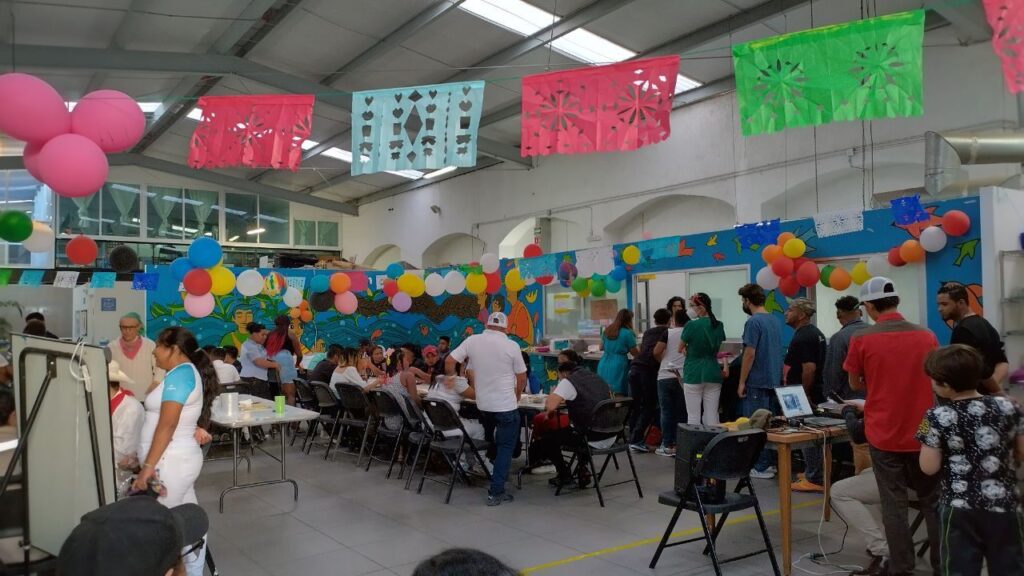
What’s Next?
“The option to travel to the United States will become more complicated for [the migrant] population every day. So, we will see a scenario in which Mexico will finally become in large part a destination country. In becoming a destination country for migration, migrant needs will become more pressing.”
FM4 Paso Libre is prepared to tackle this changing landscape. For one, Quike noted that the organization may need to shift from focusing on activities for individuals passing through Guadalajara to long-term integration into the community, perhaps through livelihood assistance, academic support and school enrollment, housing assistance, and more. At the same time, the FM4 Paso Libre building which houses the shelter may eventually convert into a community center.
Through everything, the organization will continue to rely on the local and international community for partnership and support. However, Quike underscored the importance of support that prioritizes solutions developed at the community level. He acknowledged that international bodies often fail to heed local community needs—especially as they pertain to migration issues–which has led to the downfall of many civil society organizations.
According to Quike, financial support for civil society organizations should be:
—Flexible and non-prescriptive. Support should not limit organizations with top-down and predefined objectives or activities.
—Horizontally aligned. Financially supporting organizations must recognize that their ideas are not “better” than those of the organizations on the ground. Support is collaborative and equitable.
—Led by volunteers and individual donors. Successful projects involve volunteering one’s own time and labor for the community. Individual donor and nongovernmental support should not seek profit.
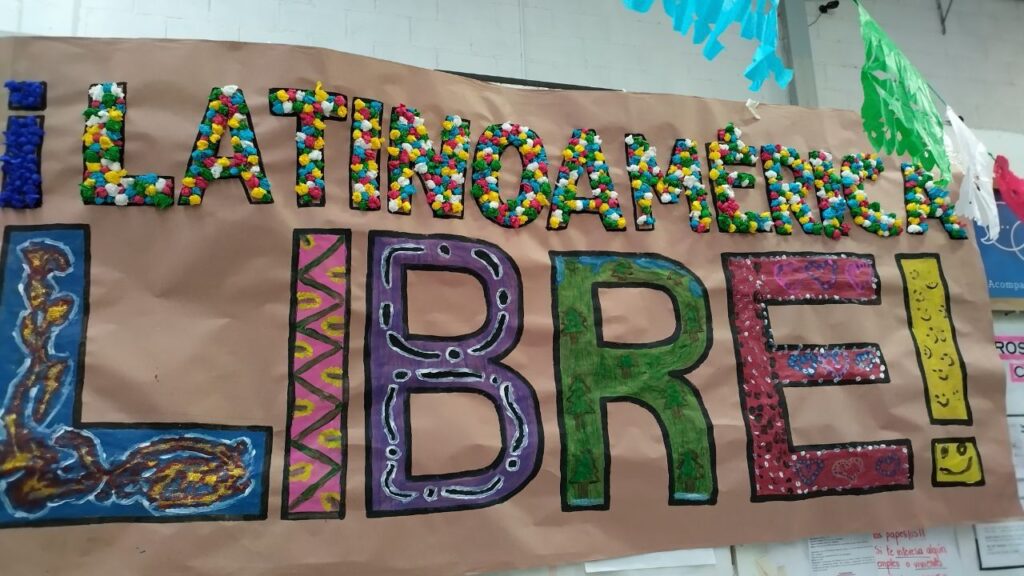
As a final thought, Quike said:
“Keep in mind that people in situations of human mobility—migrants—suffer great situations of vulnerability in this migratory context that we have because […] when a migrant individual enters a country irregularly or without documentation, they become a ghost to the national state that received them, and from there they become even more vulnerable […] With forced disappearances, with assassinations, with femicides, undocumented migrant individuals are the cannon fodder […] and go unnoticed and invisible […] When you arrive as a tourist, they stamp your passport and the national state registers you and says ‘you are here.’ But, when you cross a border irregularly, you are a ghost, so if they kill you, if they disappear you, if they do anything to you there is no way to show that you are here [or that you are missing ].”
…
To learn more about FM4 Paso Libre’s work, please visit fm4pasolibre.org for more information.
